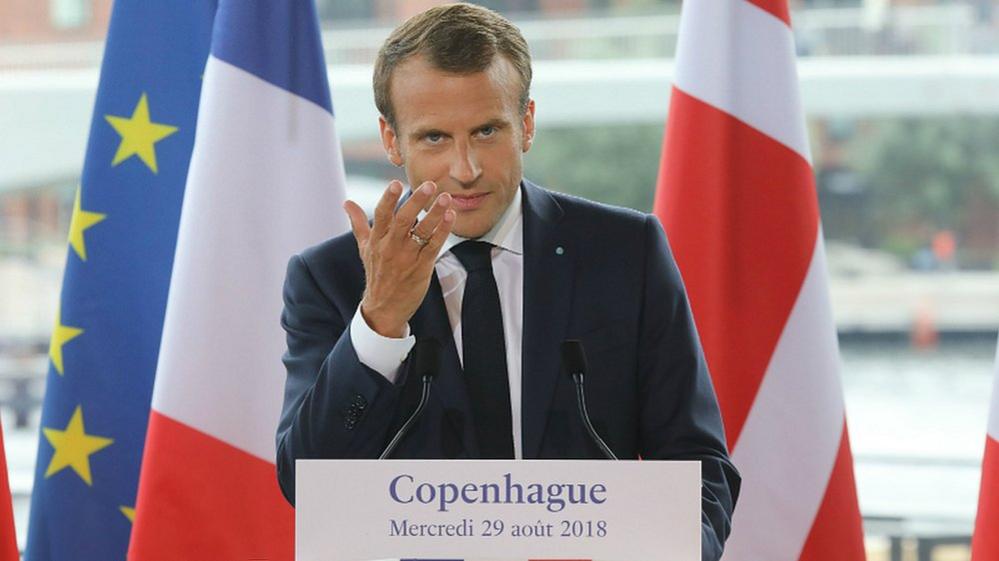France fuel protests: Man with grenade demands Macron meeting
- Published
Thousands march in France over diesel tax
A man armed with a grenade demanding protesters be given an audience with French President Emmanuel Macron has been arrested in western France.
The man, who was wearing a yellow jacket like the hi-visibility jackets worn by protesters, surrendered after several hours' negotiation in Angers.
The incident comes as Paris readies itself for the arrival of tens of thousands of protesters taking part in a second weekend of demonstrations.
They are protesting at fuel prices.
Much of the anger is directed towards President Emmanuel Macron, who is accused of being out of touch.
What happened in Angers?
Police were first alerted to the incident at about 16:45 local time (15:45 GMT) on Friday, with the man finally surrendering just before 22:30.
According to local police, the 45-year-old was holding a grenade in his hands, demanding "the yellow vests be received at the Élysée" Palace, the president's official residence in Paris.
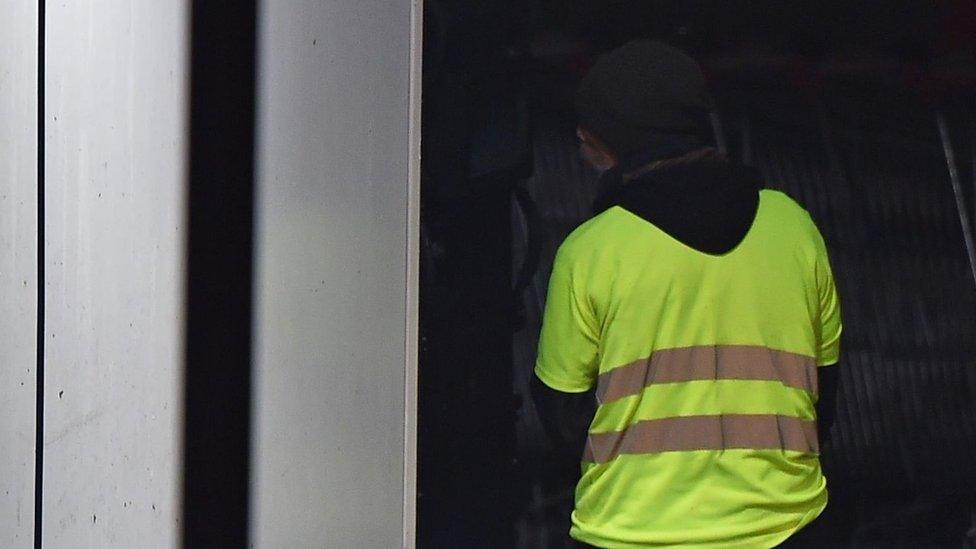
The man was in a car park in Angers
The man had spent the afternoon with a group of protesters who had gathered near the Espace Anjou shopping centre, local official Bernard Gonzalez said, according to news agency AFP.
The explosive device, which is currently being inspected by experts, was "not fake", Mr Gonzalez added, saying "there was real risk" to those around him.
The protesters have distanced themselves from the unidentified man.
What's happening on Saturday?
A smaller number of protesters wearing yellow jackets - giving the movement its name, "gilet jaune" - have been setting up road blocks around the country since the main demonstrations last weekend.
But the number of protesters is expected to rise again on Saturday, with Paris bracing itself for the arrival of people from all over France by train and coach.
Reuters news agency says as many as 30,000 are expected in the capital, with other protests expected elsewhere.
About 3,000 police officers have been brought in to work in Paris alone - dealing not just with the yellow jacket protest, but also another against sexual violence, as well as football and rugby matches.

Feeling ignored
by Hugh Schofield, BBC News, Paris
This is a protest from the social media age, which means there are no real leaders, no real demands, and no-one is quite sure how many will turn up or where in Paris.
They've been offered rallying-points by the Eiffel Tower and in two big squares in the east of Paris, but there are fears that without any focus, the protesters could break up into myriad small groups - much harder to manage especially if, as is far from impossible, trouble-makers try to join their ranks.
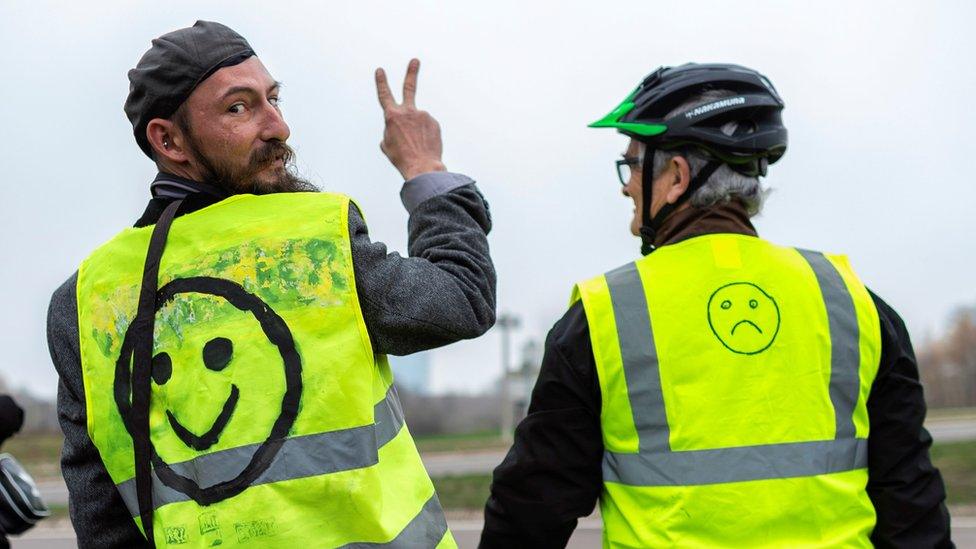
Smaller groups of protesters have gathered throughout the week
The protest may be amorphous, but the anger is real enough.
Its heartland is what's become known here as the France of the periphery: that is, the thousands of small towns across the country where people depend heavily on cars to get to work and to shop - and feel their values are ignored by the sophisticated rule makers of the capital.

Why are drivers on the warpath?
The price of diesel, the most commonly used fuel in French cars, has risen by around 23% over the past 12 months to an average of €1.51 (£1.32; $1.71) per litre, its highest point since the early 2000s, AFP reports.
World oil prices did rise before falling back again but the Macron government raised its hydrocarbon tax this year by 7.6 cents per litre on diesel and 3.9 cents on petrol, as part of a campaign for cleaner cars and fuel.
The decision to impose a further increase of 6.5 cents on diesel and 2.9 cents on petrol on 1 January 2019 was seen as the final straw.
The president has blamed world oil prices for three-quarters of the price rise. He also said more tax on fossil fuels was needed to fund renewable energy investments.
What happened last weekend?
Some 280,000 people took part in protests at more than 2,000 locations across France on Saturday, with demonstrations spilling over into Sunday.
The protests left two dead and more than 600 injured, according to the interior ministry.
At least 50 people were also arrested, although most of the protests took place without incident.
Several of the injuries came when drivers tried to force their way through protesters.
Chantal Mazet, 63, was killed in the south-eastern Savoy region when a driver who was taking her daughter to hospital panicked at being blocked by about 50 demonstrators, who were striking the roof of her vehicle, and drove into them.
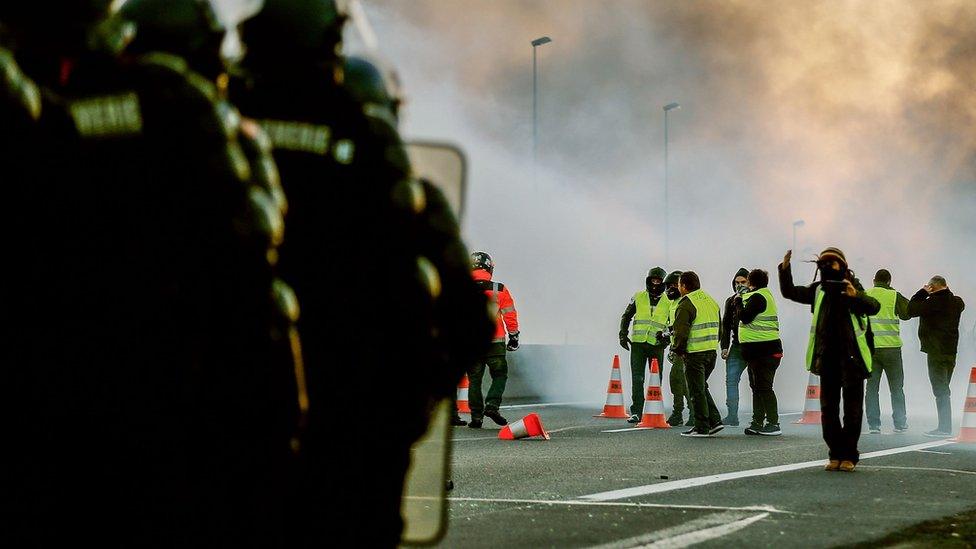
The protests spilled over into a second day
The driver has been charged with manslaughter and released on bail, prosecutors said.
About 3,500 people stayed out on Saturday in what Interior Minister Christophe Castaner called a "restive" night.
In Paris, protesters approaching the Élysée Palace were repelled with tear gas.
- Published18 November 2018
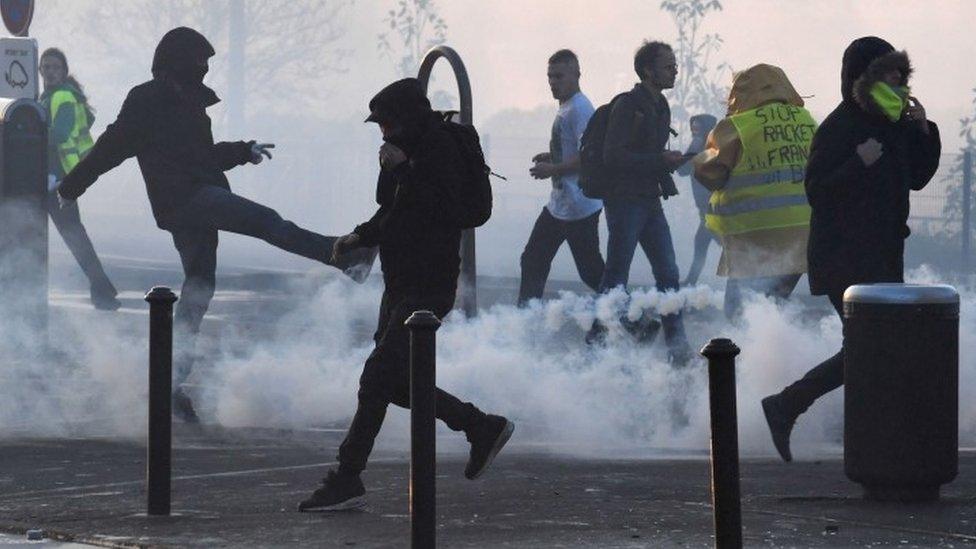
- Published21 November 2018
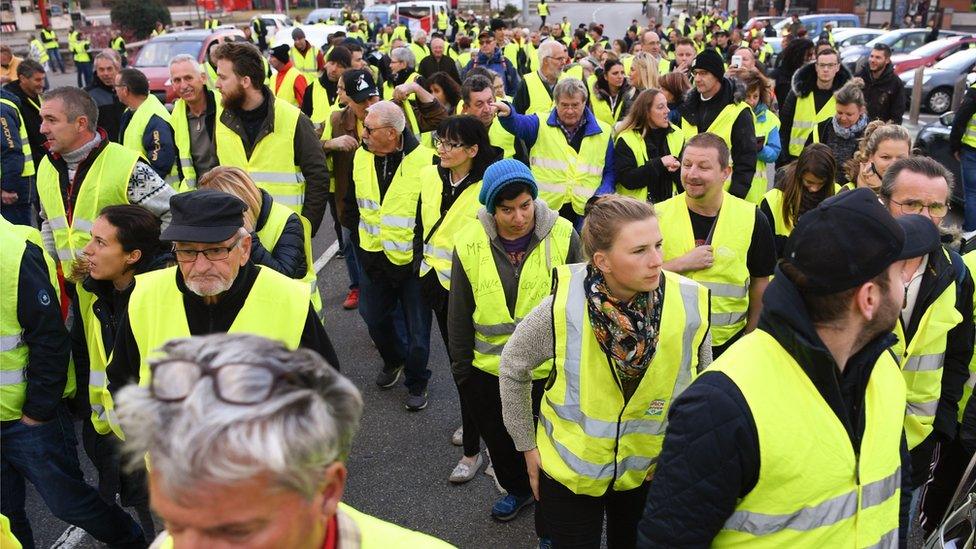
- Published6 November 2018
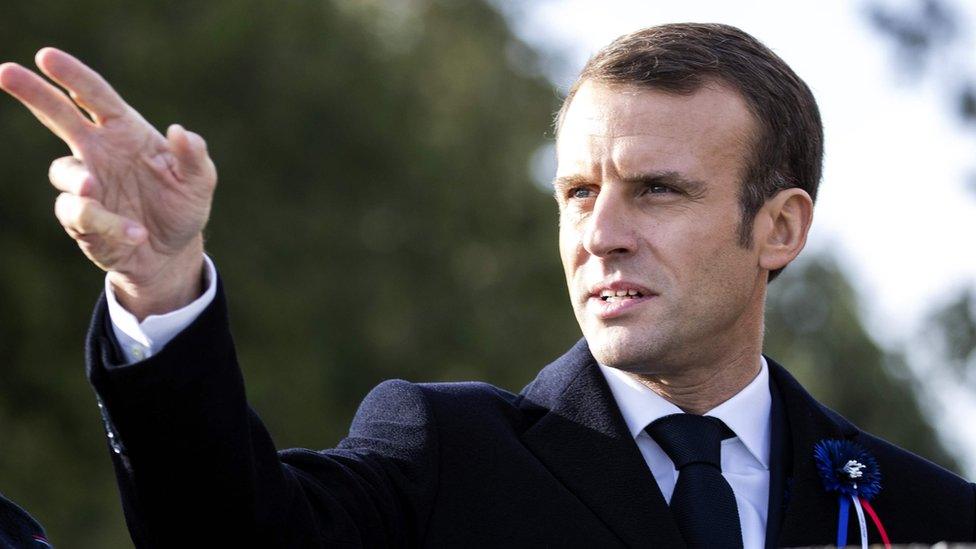
- Published18 September 2018
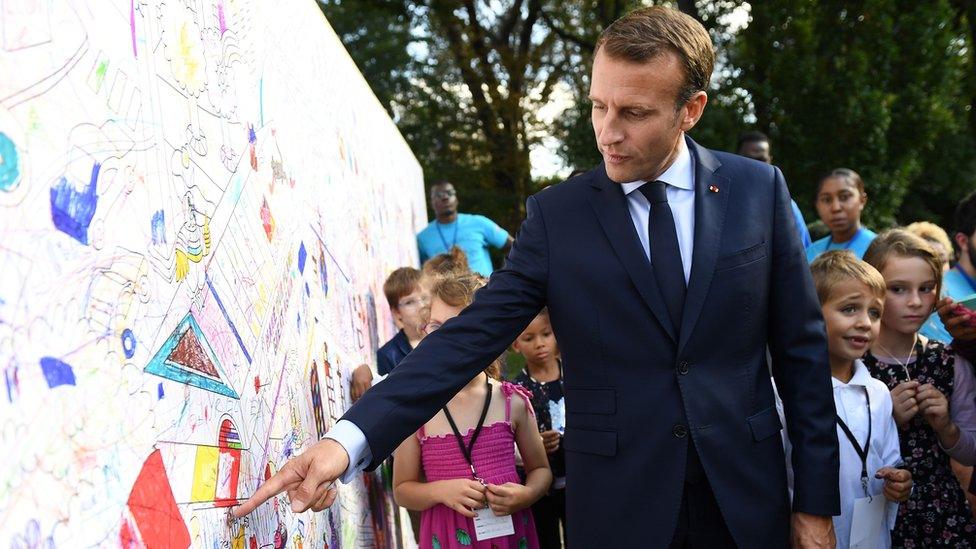
- Published30 August 2018
